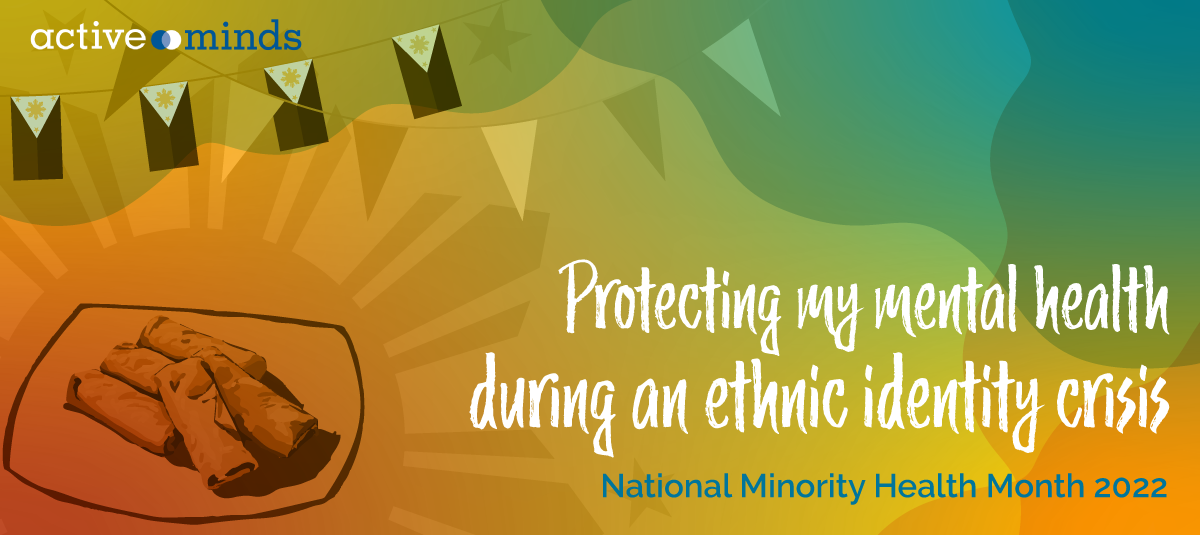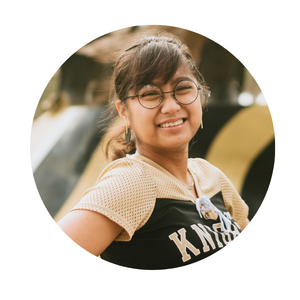One of my first extracurricular experiences in college was attempting to join the Filipino Student Association (FSA) at the beginning of my freshmen fall semester. While I could say it was a memorable experience, it’s more accurate for me to describe it as an infamous memory amongst many others that defined my college life. I remember walking into the room, crowded with Asian students – a sight I was not used to – and realizing how much of the meeting I missed coming late from class. I remember turning to the first person next to me and telling them how stunned I was at seeing so many Filipinos in one room. The conversation ended just as quickly as it started when they asked me why I found the environment and atmosphere surprising. I shared with the person that I came from a majority Black high school – large Asian student organizations were not a thing. Then, there was the look they gave me and the awkward pause that ensued. That became my last FSA meeting to date.
Reflecting on that memory, I never believed the person intended to make me feel unwelcome. Growing up, there were many differences I could point out in my upbringing that made me feel awkward about my identity. I watched teleseryes (Filipino dramas) but could never speak the language fluently. I had a debut to celebrate my eighteenth birthday, but I had never been around large groups of Asians. I ate Filipino foods and could replicate the recipes in the kitchen, but I didn’t fit all the traditional stereotypes of an Asian person. To some, what makes you Filipinx is being born in the Philippines, and being someone who has only visited the Philippines once, during the fourth grade where memories are hazy, doesn’t cut it. These differences became insecurities, and growing up, I questioned if these differences made me any less of a Filipinx? Does it make me any less of an Asian?
If the weight of these differences weren’t enough, then comes the argument of traditional values. There is, of course, the matter of being raised to believe that mental health conditions and illnesses do not exist, or specifically that they could never exist within me. Despite this, I chose the path to become a mental health advocate, mainly through my involvement with Active Minds. There will always be parts of my identity that don’t align with the traditional values many of the older Filipnx people I know live by. I remember encounters with my godmother and her group of friends from church and the hospital. While reasonable people, these were people with blatantly different ideals. It became a struggle to grow closer with my godmother, despite wanting to, because of these differences in ideals. There are things I could never share with her, especially out of fear of exposing my queer identity. It was not something my parents handled well when I first came out, and with her values closely aligning with those of my parents, I doubted that such news could pass easily through her ears. Instead, I slowly distanced myself from her as fear and discomfort took over.
All of this ruptured into what someone could call an ethnic identity crisis, which became increasingly evident to me as the rise in Asian hate crimes became more prominent. I couldn’t perceive what seemed to be a target on my back since I didn’t know if I was comfortable saying I was “Asian.” When my school organized a vigil to stand in solace for victims of Asian hate crimes in Orlando, someone told me they were surprised I showed up, and even more so when I said I would speak during the open forum to share my experiences. As all of this took place, the thought that I would say the wrong thing or that I might accidentally “sound” less Asian tormented me. While it now feels ridiculous to type out, I already knew that the sum of my skin tone, my facial features, and my last name (Ramos) made it possible to “look” less Asian, especially when the previous comments I mentioned were at the forefront of my mind.
This conflict with my identity ultimately resulted in fear of having others know I’m insecure about this very thing. This thought permanently etched in my mind and made me feel that I would struggle even more to belong in this community if others knew about my insecurities. And that’s the thing: what we all crave as humans is to belong. When you grow up feeling like an outsider to various parts of your culture, that lack of sense of belonging can destroy your well-being as much as your confidence. While I’m still learning, after becoming more comfortable in my gender identity, I know that belonging to my ethnocultural identity, likewise, does not have to be viewed as binary. I don’t have to restrict myself to the traditional Filipino ways of behaving or thinking. I can choose the values and experiences that help me feel comfortable and authentic to myself. To those who feel that their mental health is being affected by cultural confusion, I want to convey that it’s okay to choose aspects of your culture. One key to mental well-being is determining how your racial identity shapes you and whether it’s very instrumental in molding who you are or not involved at all. It’s not wrong to feel conflicted about how you resonate with your culture. You are the expert on yourself, and you have the power to dictate how you identify, regardless of the noise you may hear.




